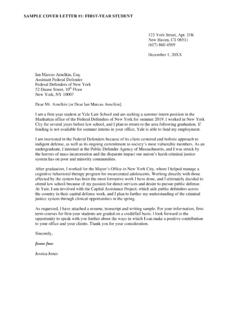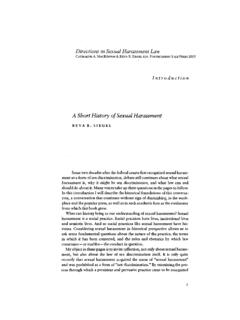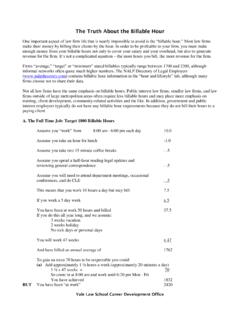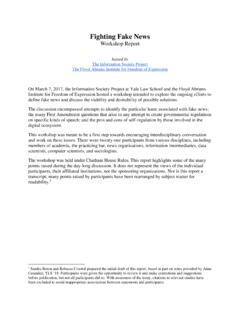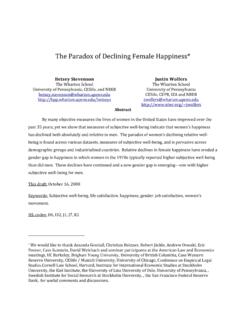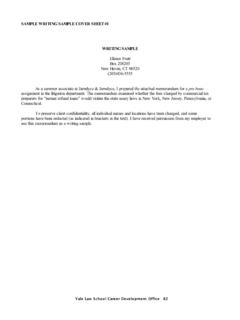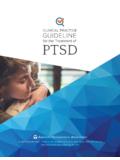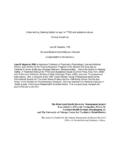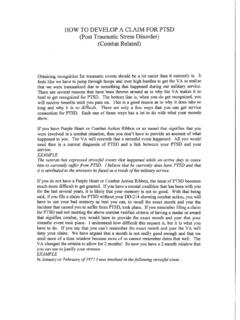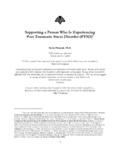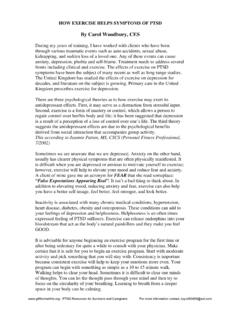Transcription of Unfinished Business FINAL - Yale Law School
1 Unfinished Businesscorrecting "Bad Paper" for veterans with ptsdMa^ =^_^gl^ =^iZkmf^gm l :]cn]b\Zmbhg h_ =bl\aZk`^ Ni`kZ]^ :iieb\Zmbhgl Hg^ R^Zk Lbg\^ Bml L^im^f[^k +)*- IML= =bk^\mbo^Prepared forVietnam Veterans of AmericaNational Veterans Council for Legal Redress[r Lng]bZmZ Lb]b[^ ?kZg\bl\h Ng`^k O^m^kZgl E^`Ze L^kob\^l <ebgb\C^khf^ G' ?kZgd E^`Ze L^kob\^l Hk`ZgbsZmbhg Zm RZe^ EZp L\ahhe1 EXECUTIVE SUMMARY Veterans who receive less than fully honorable discharges can apply to administrative boards established by Congress for a review of their discharge status. These boards may upgrade a discharge status that is erroneous or unjust. A former service member s discharge status is hugely consequential, as those with Other Than Honorable or Bad Conduct Discharges (also known collectively as bad paper ) are generally ineligible for education, housing, employment, disability, and burial benefits from the Department of Veterans Affairs (VA), and in many cases even healthcare.
2 Bad paper can also make it difficult for veterans to secure private employment and subject them to lingering stigma and shame. Unfortunately, for decades, these record correction boards have failed to function as intended by Congress. They refused to permit veterans to appear before them personally, failed to disclose information about the boards work, and most importantly, engaged in a near-categorical refusal to correct the discharge status of veterans suffering from post-traumatic stress disorder ( ptsd ), denying more than 95% of such applications from Vietnam veterans in the last 15 years. In September 2014, following criticism by veterans organizations and the media, congressional scrutiny led by Senator Richard Blumenthal, and class-action litigation, Secretary of Defense Chuck Hagel ordered the boards to grant liberal consideration to applications from veterans with ptsd .
3 This ptsd Upgrade Memo also required the boards to create a comprehensive public messaging campaign to inform veterans who have long suffered the stigma of bad paper of this new opportunity for redress. The ptsd Upgrade Memo sought to provide a legitimate chance at obtaining a record correction for hundreds of thousands of veterans who had received bad paper discharges when the effects of ptsd were unknown, as in the Vietnam War, or not fully understood. To monitor implementation of the ptsd Upgrade Memo, Vietnam Veterans of America (VVA) and the National Veterans Council for Legal Redress (NVCLR) requested records from the Department of Defense (DOD) in December 2014 and June 2015. When DOD failed to disclose these records, the organizations brought suit under the Freedom of Information Act.
4 Eventually, during the course of litigation, the Army released hundreds of pages of records. The Navy, which adjudicates applications for both the Navy and the Marines, and the Air Force have disclosed few responsive records. This report is based on the records newly-obtained by VVA and NVCLR and presents the first detailed look at compliance with the adjudication and outreach requirements of the ptsd Upgrade Memo. 2 KEY FINDINGS Since Secretary Hagel issued the ptsd Upgrade Memo in September 2014: The overall grant rate for all veterans applying for ptsd -based discharge upgrades at the Army Board for the Correction of Military Records (ABCMR) has risen more than twelve-fold from in 2013 to 45%. The grant rate for Vietnam veterans applying for ptsd -based discharge upgrades at the ABCMR has increased more than ten-fold from in 2013 to 59%.
5 Vietnam veterans are the most numerous applicants (67%) and have a higher grant rate at the ABCMR (59%) than veterans of other conflicts. The ABCMR granted 67% of applications by a veteran with a ptsd diagnosis (74/110) and 0% of applications by a veteran claiming to suffer ptsd but without medical records establishing that diagnosis (0/54). Total ptsd upgrade decisions across the military s record correction boards have increased from approximately 39 per year to approximately five times that number. Tens of thousands of eligible veterans appear not to have submitted applications. DOD has conducted little or no meaningful public outreach, a finding consistent with the low numbers of new applications when compared to the number of eligible veterans. Of upgrades awarded by the ABCMR, 97% have been to General Under Honorable Conditions (72/74) and 3% have been to Honorable (2/74).
6 3 RECOMMENDATIONS To ensure compliance with the ptsd Upgrade Memo s twin requirements of liberal consideration in adjudications and comprehensive outreach to eligible veterans, Congress should enact legislation that: 1) Codifies the presumption of an upgrade for those with a medical diagnosis of ptsd . 2) Directs the boards to refer veterans for mental health evaluations when their applications assert evidence of ptsd without a formal diagnosis, so that veterans without access to health care can still receive a fair adjudication. 3) Requires that a mental health professional serve on any board reviewing the application of a veteran asserting ptsd , traumatic brain injury, or other service-related mental health conditions. 4) Requires the DOD to implement a vigorous outreach program to identify eligible veterans and advise them how to apply for discharge upgrades successfully.
7 5) Directs the boards to release regular annual reports summarizing their application determinations in order to ensure accountability and transparency. BACKGROUND The service branches discharged roughly 260,000 Vietnam veterans with bad paper an Undesirable Discharge (UD), which was later renamed an Other Than Honorable (OTH) discharge; a Bad Conduct Discharge (BCD); or a Dishonorable Discharge (DD) stemming from misconduct during their Many thousands more service members have received bad paper since then. A service member who receives an OTH, BCD, or DD is generally ineligible to receive VA benefits, including education, housing, employment, disability compensation, burial benefits, and, in many cases, even These former service members often face intense stigma, and in addition to their ineligibility for a wide range of VA benefits, they confront lifelong barriers to private employment3 and even membership in some veterans service organizations.
8 Many veterans with bad paper suffer unemployment and homelessness. Until 1980, ptsd was not recognized as a medical diagnosis. After 1980, some Vietnam and other veterans who realized that their undiagnosed ptsd symptoms had contributed to the misconduct resulting in their bad discharge applied for discharge upgrades to the administrative boards established by Congress to correct an error or injustice in a service member s The record correction boards rejected these applications on a near-categorical basis, however. Between 1998 and 2013, for example, the ABCMR reviewed 371 upgrade applications from Vietnam veterans with an OTH asserting ptsd , and granted upgrades for only of Moreover, the boards almost universally refused to permit veterans to appear before them for in-person hearings, denying them more comprehensive process to make their 4 In recent years and during contemporary conflicts, veterans advocates and the armed service branches have paid greater attention to how ptsd contributes to misconduct that might result in a bad paper discharge.
9 Tens of thousands of former service members had undiagnosed ptsd at the time of their discharge; in fact, a major study conducted by the VA estimates that of Vietnam veterans have had ptsd in their Since at least the early 1990s, the record correction boards near-categorical rejection of applications by Vietnam veterans with undiagnosed ptsd has received criticism from veterans organizations and the public and become the subject of congressional scrutiny, led by Senator Richard Blumenthal (D-CT) and the Senate Armed Services In March 2014, VVA, NVCLR, and five individual veterans filed a proposed nation-wide class-action lawsuit on behalf of Vietnam veterans with ptsd who received an In response, in September 2014, then-Secretary of Defense Chuck Hagel directed the boards to reform their practices.
10 Specifically, he issued the ptsd Upgrade Memo, which ordered the boards to give liberal consideration to ptsd -based applications for discharge upgrades. The Memo also required military boards to create a comprehensive public messaging campaign to inform veterans of this new opportunity. Since the branches had historically failed to acknowledge the legitimacy of ptsd -based claims, the Upgrade Memo laid the groundwork for a radical change in how ptsd -based claims would be assessed. It also promised to encourage tens of thousands of veterans who had received bad discharges as a result of ptsd to apply to the boards in order to correct this injustice. In order to monitor service branches implementation of the ptsd Upgrade Memo and outreach efforts, VVA and NVCLR filed a series of Freedom of Information Act requests seeking policy documents and statistical data regarding ptsd upgrade applications and the outreach efforts mandated by Secretary Hagel.
